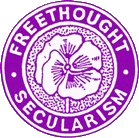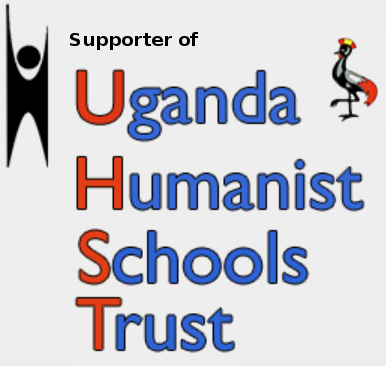APRIL
|
|
|
|
24th (Zoom lecture) |
The anti-Rosetta Stone: A surprising journey deep into the heart of language
|
Keith Kahn-Harris
|
In this talk about the multilingual warning messages inside Kinder Eggs – yes really – Keith Kahn-Harris shows how the languages we do not understand can beguile, mystify and even be an aid to conflict resolution. Dr Keith Kahn-Harris is a writer and sociologist. His last two books were on weighty topics – denialism and antisemitism, yet his career recently took a surprising new direction. During the 2020 lockdown he found himself seeking connection with others through an odd obsession – commissioning translations of the warning messages inside Kinder Surprise Eggs into dozens of languages. This project provides the basis of his 2021 book ‘The Babel Message: A Love Letter to Language’. While the book is a celebration of language from an unlikely starting point, it also develops a serious argument: that, contrary to the Babel myth, it is by treasuring the languages we do not understand that we can make peace between our fellows. For more details see: https://kahn-harris.org/ |
MAY
|
|
|
.
|
1st
|
Sisters with Transistors (film).
Running time 86 minutes |
|
The remarkable untold story of electronic music’s female pioneers, composers who embraced machines and their liberating technologies to utterly transform how we produce and listen to music today. The film maps a new history of electronic music through the visionary women whose radical experimentations with machines redefined the boundaries of music, including Clara Rockmore, Daphne Oram, Bebe Barron, Pauline Oliveros, Delia Derbyshire, Maryanne Amacher, Eliane Radique, Suzanne Ciani and Laurie Spiegel. |
8th |
Malawian Migration to Zimbabwe: Tracing Machona
|
Zoe Groves |
This talk will discuss the rich history of Malawian migration to Zimbabwe during the colonial and postcolonial era.
This talk, based on Zoe’s book published in 2020, explores the culture of migration that emerged in Malawi in the early twentieth century as the British colony became central to labour migration in southern Africa. Migrants who travelled to Zimbabwe stayed for years or decades, and those who never returned became known as machona – ‘the lost ones’. Through an analysis of colonial archives and oral histories, the book captures a range of migrant experiences during a period of enormous political change, including the rise of nationalist politics, and the creation and demise of the Central African Federation. Malawian men and women shaped the culture and politics of urban Zimbabwe in ways that remain visible today. Ultimately, the voluntary movement of Africans within the African continent raises important questions about the history of diaspora communities and the politics of belonging in post-colonial Africa. Zoe Groves is a lecturer in modern global, colonial, and postcolonial history at the University of Leicester. Her research examines the social and cultural history of central and southern Africa, with a focus on migration, urbanisation and popular culture in Malawi and Zimbabwe. Zoe is a member of the editorial board for the Journal of Southern African Studies. Her new research is a collaborative project on histories of dance in Africa. |
15th |
Working for Medecins Sans Frontieres during the Rohingya refugee crisis in Bangladesh
|
Ian Cross |
Ian was a GP in Leicester before joining Medecins Sans Frontieres. |
22nd |
The History of Radical Bookshops |
Ross Bradshaw |
Ross Bradshaw from Nottingham’s Five Leaves Bookshop on the history of freethinking, socialist, anarchist, feminist – and Stalinist (!) – radical bookshops.
Radical bookshops have a long history - in Nottingham a freethought bookshop was active in the 1820s, though the two main periods of radical bookselling activity comprised a) the heyday of the Communist Party, when their shops operated way beyond the industrial heartlands b) the more libertarian and feminist influenced 1970s and 80s before a steady decline from the mid-eighties Both periods had dedicated journals, the second including The Radical Bookseller and the review journal News from Neasden as well as a national organisation, the Federation of Alternative Bookshops, later the Federation of Radical Bookshops. There were also socialist, Black and international bookfairs and the Feminist Book Fortnight.
Several radical bookshops are long lasting, including Housmans (in the same London premises since 1958), News from Nowhere (Liverpool, established in 1974), October Books (Southampton, established in 1977), Gays the Word (London, established 1979) while the London Anarchist Bookfair lasted thirty years. In recent years the sector has revived with the founding of the Alliance of Radical Booksellers, the Bread and Roses Award for Radical Publishing, the Little Rebels Award for Children's Books, the London Radical Bookfair (on hold because of COVID) and the revived Feminist Book Fortnight. Many new shops have opened or are in the process of opening, particularly LGBT+ bookshops.
This talk will cover some of that history and discuss changing notions of what is radical. The speaker will read from material produced by bookshops of different periods, as well as some (hilarious) fictional - and factual - portrayals of radical bookshops. Finally, he will discuss whether there is any need, still, for a radical sector when many independent bookshops and our trade association, the Booksellers Association, back liberal values and a more diverse ownership structure of bookshops.
Radical |bookshops have a fascinating history, including periods of police raids, attacks by fascists, books being seized by customs, and in Nottingham in the 1820s Mrs Susanna Wright had to defend her bookshop with a pistol!
|
29th
|
(details to be announced)
|
Kathleen Richardson |
|
JUNE |
|
|
|
5th (Zoom lecture)
|
Modern witchcraft: history, religion, and magic.
|
Helen Cornish
|
While we might think of witchcraft as an irrational superstition that belongs to the past, this talk examines some aspects of magical religious witchcraft (one of the traditions under modern Nature Religions), through thinking about history, religion, and magic. Helen is an anthropologist at Goldsmiths, University of London. In her research she has examined how contemporary witches navigate questions about historical evidence and the past, in the establishment of a modern magical-religious movement. Some of her fieldwork has been based at the Museum of Witchcraft and Magic in Cornwall. Some of her writing can be found at https://goldsmiths.academia.edu/HelenCornish
|
12th
|
Edward Carpenter |
Stephen Slack
|
Edward Carpenter, socialist, gay man, vegetarian, nudist, environmentalist, and women’s rights campaigner. A man before his time?
Carpenter was born into a wealthy family in Brighton, went to study at Cambridge University and later was ordained into the church. Despising the hypocrisy of the church he left disillusioned and moved to the north to teach as a part of The University Extensions movement, an early forerunner to Adult Education. Carpenter had a strong desire to be amongst working class people and to experience what he felt to be a more true and authentic life. Carpenter eventually settled in Sheffield, a city which he loved, before buying land in Derbyshire, building a house, and establishing a smallholding where he also wrote about socialism, sexuality and alternative ways of living. He received many influential visitors to his home in Derbyshire, great thinkers, artists, and writers including E.M.Forster. The love of Carpenter’s life was George Merrill, originating from the slums of Sheffield, who eventually moved into the house in Millthorpe in Derbyshire. The men were lovers at a time Oscar Wilde was imprisoned for his homosexuality and they also risked legal consequences as a result of their sexual relationship.
Steve will give a critical overview of Carpenter’s life, loves and his beliefs.
Steve Slack has a background in social work and healthcare, working in the area of mental health, sexual health, and HIV. He is an LGBT rights campaigner and for the past 15 years has been fascinated by the life, loves and thoughts of Edward Carpenter. He is currently writing an historical novel based on his life. |
19th
|
Assisted Dying: End of Life Choice. |
Zena Deayton |
Zena will talk about Assisted Death – what it means and what it does not - and an Assisted Dying Law – campaign and progress on legislation.
Zena is the Dignity in Dying Lead for Leicestershire and Rutland.
|
26th
|
Living Your Passion |
Paul Bup |
From the classroom to ethical cocoa sourcing and chocolate manufacturing. Paul will talk about his journey from the classroom to a developing industrial social entrepreneur. Paul has been a teacher of computer science and ICT since 2005. His passion is industrial and social entrepreneurship. |
JULY
|
|
|
|
3rd |
Gotcha! Voltaire. History, Truth, Journalism |
Bill Leigh
|
Modern Secularism grew from 18th-century Enlightenment philosophy, such as Voltaire’s; this talk examines inter alia accusations he was an anti-semite. Voltaire [1694-1778], the most prolific writer, philosopher and historian in the French Enlightenment had strongly emotional relationships with: the French state, which at various times honoured, imprisoned and exiled him; the French Church, which condemned and censored him many times; Jewish financiers whom he condemned several times; God, dying as he did after setting on record “I die adoring God, loving my friends, not hating my enemies, and detesting superstition.” His relationship with Mme de Chatelet was based upon love, sex and shared interests in literature, history and science. She translated Newton’s Principia into French; her Anglophile lover popularised it and introduced his compatriots to Shakespeare. He also had an on-off love-hate relationship with the king of Prussia. Little wonder with his long, full, recent and emotionally-charged life, that he still has many enemies, including some who accuse him of antisemitism. This talk reviews the arch-founder of secularism’s life and the claims of those enemies. Bill Leigh was formerly an academic in Britain, West Africa and the Caribbean, then a secondary school teacher for the European Union in the Netherlands, Italy, Britain and Brussels. Having published research in theoretical physics and fiction for children, after retirement from the British School in Warsaw he took a degree in History, writing a dissertation on Truth in History and High-Energy Physics. Currently a refugee from Brexit and a lifelong enthusiast of literature, and especially of French philosophy, he is preparing two papers in theoretical physics for publication, together with further works of fiction. Neither he nor Voltaire is/was an antisemite… |
10th
|
Social event (details to be announced)
|
|
|











